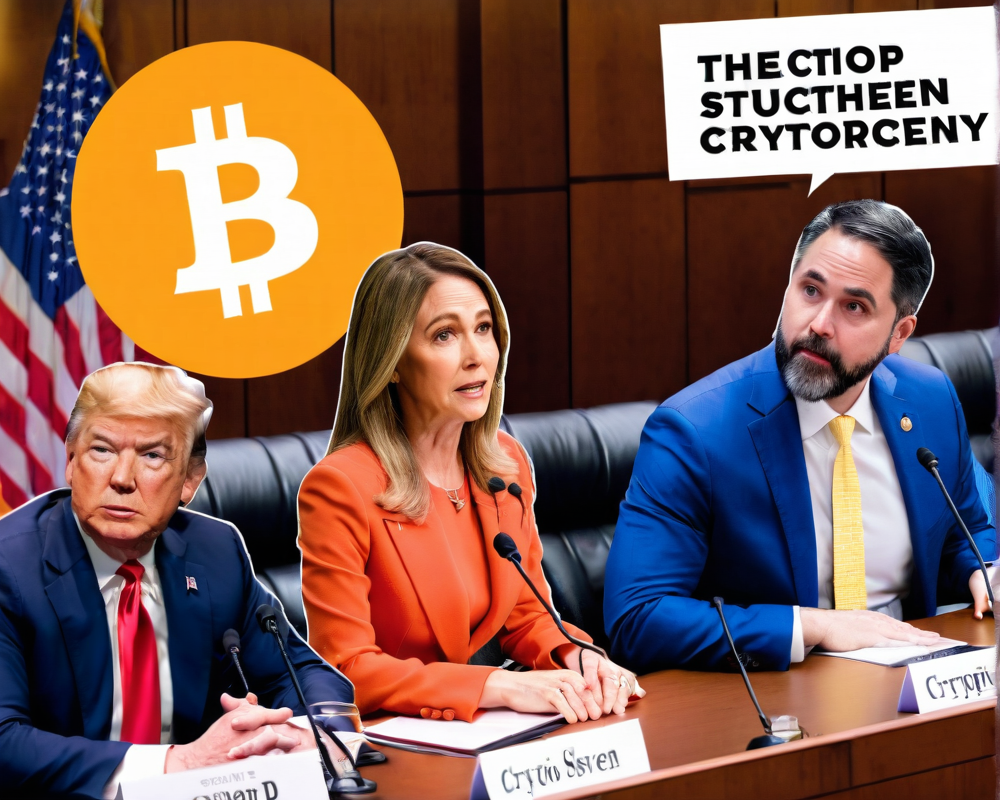A Day of Diverging Opinions
On July 18, the world of cryptocurrency found itself the star of a congressional double feature, with one hearing in the House Agriculture Committee and another in the House Financial Services Committee. You’d think both would be reading from the same script, but instead they appeared to be from completely different plays. One side whispered sweet nothings about the future of crypto, while the other side clutched their pearls, looking concerned about rogue coins undermining the fabric of society.
Meet the Crypto Wizards
The Agriculture Committee’s hearing, intriguingly titled “Cryptocurrencies: Oversight of New Assets in the Digital Age,” featured a diverse panel of experts sharing their insights over crypto’s regulatory maze:
- Joshua Fairfield: This law and technology scholar specializes in keeping up with digital property and electronic contracts—basically, he’s making sure your online pizza orders are legally binding.
- Amber Baldet: Co-founder and CEO of Clovyr, she aims for a decentralized app store while formerly leading blockchain initiatives at JPMorgan.
- Scott Kupor: Managing partner at a major venture capital firm, he brings investment wisdom to the table.
- Daniel Gorfine: Over at LabCFTC, he’s promoting a “let’s not panic” approach to fintech innovation.
- Gary Gensler: The seasoned expert and former CFTC Chairman, he translates complex crypto puzzles into bite-sized blockchain nuggets.
- Lowell Ness: Managing Partner at Perkins Coie, he advocates for a balanced approach to crypto regulation.
Congress Gets Cozy With Crypto
In opening the hearing, Chairman Michael Conaway of Texas painted a somewhat rosy picture of the crypto landscape: “This hearing will shed light on the promise of digital assets and the regulatory challenges facing this new asset class.” It sounds optimistic, but we all know politicians love a good PR spin. Conaway even hinted at the committee’s vested interest in determining what qualifies as a security versus a commodity, so you might say their interest wasn’t merely academic.
Who Controls the Crypto? The Legal Status Quagmire
Central to discussions was the question: what in the digital world is a Bitcoin, really? Gensler and Fairfield both pointed out that different agencies define digital assets differently—it’s like arguing over whether a hotdog is a sandwich—nobody can agree!
Gensler posited that the status of a digital token is often “fluid.” If you catch it during its “pre-functional” phase, it’s treated as a security. However, once it’s ready for the big league and is being used, hello commodity! It’s enough to make anyone’s head spin. Can you imagine applying for a job that kept changing its title? A bit of a headache, right?
Blockchain’s Shining Moments and Downtrodden Dilemmas
Despite skepticism, blockchain technology was hailed for its potential. Fairfield even listed seven successes where it shines—think speedy payments and secure transactions. But hold your horses! Baldet cautioned that blockchain isn’t the cure-all just yet, particularly when it comes to voting. “We are not ready to tackle the complex computer science and coordination problem,” she said. Who knew voting could be more complicated than choosing where to eat?
Decentralization: A Non-Issue? Seriously?
Amidst debates about decentralization, it seems the panel wasn’t worried about mainstream adoption. Gensler remarked on the funny irony of decentralized technology being funneled through centralized exchanges. Apparently, it’s like having a decentralized party but ending up at one friend’s house where everyone is forced to mingle. Gorfine reiterated that most transactions still flow through intermediaries applying anti-money laundering rules, which makes things a little less wild west.
The Dismal Counterpart: A Call for Crypto Regulation
Meanwhile, over in the House Financial Services Committee, the tone darkened as Federal Reserve Chair Jerome Powell called cryptocurrencies “dangerous to investors”. And Congressman Brad Sherman didn’t hold back, suggestively wanting to throw the ban hammer down. Talk about a suspenseful sequel!
Wrapping It Up: A Blessing in Disguise for Crypto
As was summarized across the hearings, there’s a silver lining to the cloudy discussions about regulation. Gensler believes that sensible regulatory frameworks should help the industry grow, but not in a way that squashes innovation. Some sideline skeptics, like Congressman Peterson, likened crypto to a Ponzi scheme, leading to fruitful (or exhausting) debates.
At the end of this legislative roller coaster, it seems that the world of cryptocurrencies has more questions than answers, but one thing is for sure: Crypto lives on, whether Congress approves or not. So, here’s to the next chapter in this never-ending saga!














+ There are no comments
Add yours